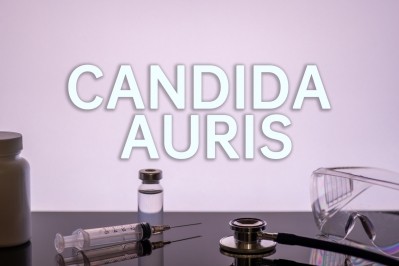How Hazel Jones is charting new horizons in genomics

BPR: Could you give us an overview of your work?
Although I have spent over 20 years in oncology drug discovery I have taken a leap of faith into a 3D genomics company. I have been impressed with how much genomics has supported both target discovery and drug development, from understanding disease mechanisms to use as stratification markers in clinical trials. To truly harness the potential for patients, it is essential we develop these new techniques as quickly as possible. The current focus of Enhanced is using the 3D genome information to identify novel targets and develop unique patient stratification.
BPR: When did you realize you were interested in science - as a young child, teen, or older?
Like most scientists, I’ve always been fascinated by science, particularly how drugs work – hence studying pharmacology as a first degree. My passion was further supported by my PhD focussed on understanding a novel photosensitiser in photodynamic therapy. This led to interesting projects in multidrug resistance and antibody development at Cambridge Antibody Technology. Being part of one of the first teams to prosecute immunology targets for oncology was exciting, as well as being hard work to provide evidence of a new drug mechanism. Being involved in a drug that got to patients is always an inspiration.
BPR: Could you describe your personal journey bringing us to where you are now?
My personal journey has been about finding roles that broaden my experience, from MedImune I moved to CRUK Discovery Labs to head up a bigger team responsible for oncology drug discovery from target identification to candidate nomination. From here I moved to CRUK Drug Development to lead the Combinations Alliance a clinical programme set up in collaboration with Experimental Cancer Medicine Centres and Biotech/Pharma. This expanded my experience in the clinical setting as well as developed key operational traits.
Moving back to AstraZeneca as Susan Galbraith’s chief of staff was a recognition of my operational delivery, organisation skills and delivery of collaborations. These were honed during the re-organisation of oncology R&D and it was incredible to be part of the R&D oncology leadership team. Finally, I took a secondment in digital health, identifying the key role it would play in the future of drug development. I then decided it was time to return to biotech, after 6 Month sabbatical to take my kids through their exams I’m now learning again as CEO of Enhanced Genomics.
BPR: What challenges did you face - as a woman or otherwise - along the way and what is the most valuable lesson you have learned?
There are multiple challenges in drug development and I’ve faced most of them at one time or another. I believe it's more the approach to any challenge than the scientific reasoning. I’m very action-orientated and pragmatic, so I focus on delivering what is possible now and start planning for the impossible. I use every hurdle as an opportunity to learn and that is now supporting me during my first year as CEO. There’s a huge number of priorities, however a focus on the long term vision is essential.
BPR: What ignites your passion in your current role?
As CEO I am keen to demonstrate the applicability of the 3D genomics platform. It's essential I bring all employees and the board on the journey to turn great science into impact in the disease setting. My passion is to do this as fast as possible, maximising how many disease areas we can deliver in.
BPR: Could you share some advice for young women starting to develop an interest in science or wanting to pursue a career like yours?
It's really important that young and mid-level career scientists get mentored by quite senior female and male leaders. I’ve been very lucky that my early line managers inspired me. I have also sought career guidance from various individuals to support my journey. This has influenced my career decisions, both with advice and preparation and in making big bold moves when typically women question whether they have the experience.
















